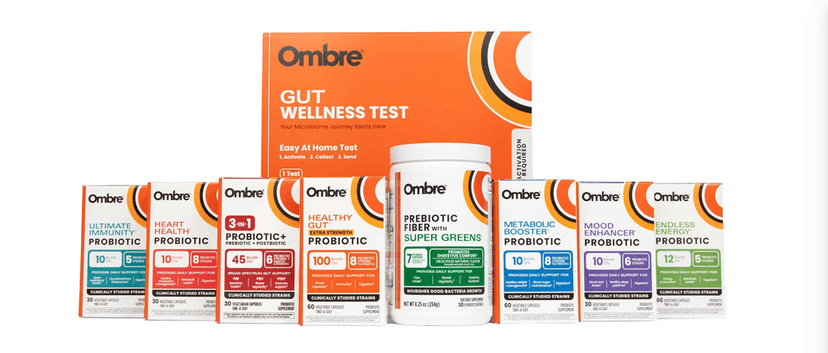Probiotics have become a hot topic in recent years, especially when it comes to digestive health. These tiny, living microorganisms can have a big impact on our gut and overall well-being. From boosting our immune system to helping with common digestive issues, probiotics offer a range of benefits. In this article, we will explore what probiotics are, how they work, and why they are so important for our health.
Key Takeaways
- Probiotics are live microorganisms that support gut health and overall well-being.
- They can be found in fermented foods like yogurt, kefir, and sauerkraut, as well as in supplements.
- Probiotics help maintain a balanced gut microbiome, which is crucial for digestion and immune function.
- Scientific studies suggest that probiotics can help with digestive issues such as constipation and diarrhea.
- Choosing the right probiotic involves considering factors like strains, efficacy, and safety.
Understanding Probiotics and Their Benefits
Definition of Probiotics
Probiotics are tiny living organisms that provide health benefits when consumed. They are often called "good" or "friendly" bacteria because they help keep your gut healthy. These beneficial bacteria play a crucial role in maintaining the balance of microorganisms in your digestive system.
Health Benefits of Probiotics
Probiotics offer a range of health benefits, including:
- Supporting digestion and nutrient absorption
- Helping to control harmful bacteria in the gut
- Reducing symptoms of certain digestive disorders, like irritable bowel syndrome (IBS)
- Boosting the immune system
- Alleviating lactose intolerance
Probiotics are also being studied for their potential to prevent and treat various diseases, thanks to their antimicrobial, anti-inflammatory, and antioxidant properties.
Sources of Probiotics
You can find probiotics in various foods and supplements. Common sources include:
- Fermented foods: Yogurt, kefir, sauerkraut, kimchi, and miso
- Probiotic supplements: Available in capsules, tablets, and powders
Including these sources in your diet can help maintain a healthy balance of gut bacteria.
The Gut Microbiome and Its Importance
Composition of the Gut Microbiome
The gut microbiome is a complex community of trillions of microorganisms, including bacteria, viruses, fungi, and other microbes. These tiny organisms live in our digestive system and play a vital role in maintaining our health. A balanced gut microbiome is essential for good health. The diversity of these microorganisms can be influenced by various factors such as diet, lifestyle, and antibiotic use.
Functions of the Gut Microbiome
The gut microbiome helps with digestion by breaking down complex carbohydrates, producing essential vitamins, and extracting nutrients from food. It also supports the immune system by acting as a barrier against harmful pathogens. Additionally, the gut microbiome helps regulate inflammation and maintain the integrity of the gut barrier.
Impact on Overall Health
A healthy gut microbiome is linked to overall well-being. It influences many bodily functions and can affect mood, weight, and even the risk of certain diseases. An imbalance in the gut microbiome, known as dysbiosis, can lead to various health issues, including digestive problems, allergies, and autoimmune diseases.
Maintaining a healthy gut microbiome is crucial for overall health and can be achieved through a balanced diet, regular exercise, and avoiding unnecessary antibiotics.
How Probiotics Support Digestive Health
Mechanisms of Action
Probiotics introduce beneficial bacteria into the gut microbiome. These friendly bacteria help restore balance, especially after disruptions like antibiotic use. They compete with harmful bacteria for space and nutrients, keeping the gut environment healthy. Probiotics also aid in digesting food, producing vitamins, and maintaining a strong barrier against pathogens.
Common Digestive Issues Addressed
Probiotics are known to help with several digestive problems, including:
- Constipation
- Diarrhea, including antibiotic-associated diarrhea (AAD)
- Irritable Bowel Syndrome (IBS) symptoms
- Certain types of community-acquired diarrhea
Scientific Evidence
Research supports the benefits of probiotics for digestive health. Studies show that specific strains can be effective in treating conditions like IBS and AAD. However, identifying the most effective strain can be challenging. For example, VSL#3 is known to help with Inflammatory Bowel Disease (IBD), but not all probiotics are equally effective for every condition.
Probiotics are a promising option for improving digestive health, but it's essential to choose the right strain for your specific needs.
Probiotics and Immune System Function
Immune Modulation
Probiotics play a crucial role in modulating the immune system. The gut lining contains immune cells and substances that support the immune function of the gut barrier. Among these substances is Secretory IgA (SIgA), an immunoglobulin that helps in the immune defense mechanism of the gut. Probiotics boost the production of SIgA, enhancing both mucosal and systemic immunity. They also affect immune cells and cytokines to improve immune function.
Probiotics in Infection Prevention
Probiotic bacteria can significantly influence the immune system by releasing anti-inflammatory cytokines in the gut. They can impact various types of immune cells, including dendritic cells, monocytes, natural killer (NK) cells, macrophages, lymphocytes, and epithelial cells. One key mechanism involves activating pattern recognition receptors (PRRs) found on both immune and non-immune cells.
Allergic Reactions and Probiotics
Probiotics may also help reduce the risk of allergic reactions. Certain probiotic strains can modulate the immune response, potentially lowering the risk of infections and allergies. This modulation can be particularly beneficial for individuals with conditions like inflammatory bowel disease (IBD), where probiotics have shown anti-inflammatory effects and other health benefits.
Choosing the Right Probiotic Supplement
Factors to Consider
When selecting a probiotic supplement, it's important to consider several factors to ensure you get the most benefit. Look for supplements that list the specific strains they contain and their respective amounts. This information can help you choose a product tailored to your needs. Additionally, consider the form of the supplement, such as capsules, powders, or liquids, as well as the recommended dosage.
Different Strains and Their Uses
Probiotics come in various strains, each offering unique benefits. Some strains are particularly effective for digestive health, while others may support immune function or mental well-being. Here are a few common strains and their uses:
- Lactobacillus acidophilus: Often used for general digestive health.
- Bifidobacterium bifidum: Known for its role in supporting the immune system.
- Saccharomyces boulardii: Effective in preventing antibiotic-associated diarrhea.
Safety and Efficacy
Safety and efficacy are crucial when choosing a probiotic supplement. Ensure the product has been tested for safety and effectiveness. Look for certifications or seals of approval from reputable organizations. It's also wise to consult with a healthcare provider before starting any new supplement, especially if you have underlying health conditions.
Choosing the right probiotic supplement can significantly impact your health. Make informed decisions by considering the factors, strains, and safety measures discussed.
Incorporating Probiotics into Your Diet
Fermented Foods
To boost your intake of probiotics, consider adding fermented foods to your diet. These foods are rich in beneficial bacteria that support gut health. Some popular options include:
- Sauerkraut
- Kimchi
- Kefir
- Greek yogurt
- Kombucha
Ease into increasing your probiotic intake slowly, and pay attention to any side effects — both positive and negative. Since there are many different strains of probiotics, note how each of them affects you differently. A food and supplement journal would be very helpful for this introductory period.
Probiotic Supplements
If fermented foods aren't your thing, probiotic supplements are a convenient alternative. These supplements come in various forms, such as capsules, tablets, and powders. When choosing a supplement, consider the following factors:
- Strain diversity: Look for a product that contains multiple strains of bacteria.
- Colony-forming units (CFUs): Higher CFUs can be more effective, but start with a lower dose to see how your body reacts.
- Storage requirements: Some probiotics need refrigeration, while others are shelf-stable.
Daily Consumption Tips
Incorporating probiotics into your daily routine doesn't have to be complicated. Here are some simple tips:
- Add a spoonful of kefir to your morning smoothie.
- Enjoy a serving of Greek yogurt with fresh fruit as a snack.
- Drink a glass of kombucha with your lunch.
- Take a probiotic supplement at the same time each day to build a habit.
Consistency is key when it comes to reaping the benefits of probiotics. Make them a regular part of your diet to support your digestive health.
Potential Risks and Side Effects of Probiotics
Common Side Effects
Probiotics are generally safe for most people. However, some individuals may experience mild side effects such as gas and bloating. These symptoms are usually temporary and may subside as your body adjusts to the probiotics. If you experience severe reactions, including abdominal pain, it is advisable to reduce your daily intake and gradually increase it over time.
Who Should Avoid Probiotics
While probiotics are safe for the majority, certain groups should exercise caution. People with weakened immune systems, such as those on immunosuppressant drugs, critically ill patients, and premature infants, may be at a higher risk of adverse effects. In rare cases, a probiotic product might contain harmful microbes that could cause serious infections in these vulnerable populations.
Consulting Healthcare Providers
Before starting any probiotic regimen, it is essential to consult with a healthcare provider, especially if you have underlying health conditions. They can help you determine the appropriate type and dosage of probiotics for your specific needs. Regular check-ups can also monitor any potential side effects and ensure the probiotics are working effectively.
It's crucial to approach probiotics with the same caution as any other supplement. Always seek professional advice to ensure they are safe and beneficial for you.
Conclusion
In summary, probiotics play a significant role in maintaining digestive health. These beneficial bacteria help balance the gut microbiome, which can improve digestion and reduce the risk of various gastrointestinal issues. Beyond digestion, probiotics may also boost the immune system and support mental health. Including probiotic-rich foods like yogurt and sauerkraut in your diet or taking supplements can be a simple way to promote overall well-being. As research continues, we will likely discover even more benefits of these friendly microorganisms. Prioritizing gut health with probiotics is a step towards a healthier life.
Frequently Asked Questions
What are probiotics?
Probiotics are live bacteria and yeasts that are good for your health, especially your digestive system. They are often called 'good' or 'friendly' bacteria because they help keep your gut healthy.
How do probiotics help with digestion?
Probiotics aid digestion by breaking down food, absorbing nutrients, and fighting off harmful bacteria. They help maintain a balance in your gut microbiome, which is crucial for good digestion.
What foods are rich in probiotics?
Foods like yogurt, kefir, sauerkraut, kimchi, and other fermented foods are rich in probiotics. These foods contain live bacteria that can help improve your gut health.
Can probiotics boost the immune system?
Yes, probiotics can help strengthen your immune system. They do this by promoting the production of natural antibodies and boosting the activity of immune cells.
Are there any side effects of taking probiotics?
Some people may experience mild side effects like gas, bloating, or an upset stomach when they first start taking probiotics. These symptoms usually go away after a few days.
Who should avoid taking probiotics?
People with weakened immune systems or serious health conditions should talk to their doctor before taking probiotics. It's always best to consult a healthcare provider to ensure they're safe for you.




















